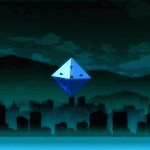-
search suggestions:
- Adva Zakai
- Aela Royer
- Alice Chauchat
- Christian Hansen
- Darko Suvin
- Donna Haraway
- Edward George
- Ekaterina Kaplun
- Esta Matkovic
- Esther Rodriguez-Barberzo
- Eunkyung Jeong
- Fabrizio Terranova
- Femke Snelting
- Felix Guattari
- Helena Dietrich
- Juan Fernando Duque
- Kristien Van Den Brande
- Laurence Rassel
- Lili Rampre
- Luiza Crosman
- Marialena Marouda
- Myriam Van Imschoot
- Octavia Butler
- Paul Gilroy
- Peggy Pierrot
- Pierre Rubio
- Samuel Delany
- Sana Ghobbeh
- Seba Hendrickx
- Sina Seifee
- Sol Archer
- Steve Goodman
- Sven Dehens
- Ursula le Guin
- Zoumana Meite
-
category suggestions:
- anti-white noise critical space alternative takes on über-Mensch through sound and music as forms of critique
- different hopes the question of ‘what to do?’ after the deillusionization of old regimes of commercial, technological, artistic, political, social utopias
- programBroadcasting RRadio Triton Broadcasting RRadio Triton by OFFoff, Domes FM, a.pass and RRadio Triton, 26.01.2019
- radioactive condensations portals
- science fictioning the real
- staging difference through minor perspectives oppressed category build-up–shifts/changes in the status of victims–resilience processes by self-determination of h/History(ies)
- the trouble of an imperfectly stitched body disparate monster identity as the very condition of shared mode of vision
- RRadio Triton Data Retrieval Interface
- user_login: (not logged in)
- Darko Suvin matched KEYWORD
- timeline sequenced by 1 audio item
- landscape composed of 0 visual elements



